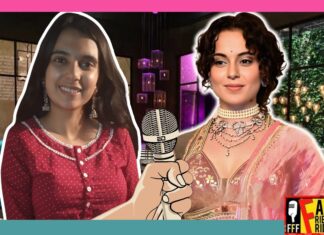By Anirudh Kashi
The once glorious and all powerful India, suffers today from problems most unique to this country. The major problem is that even after the British have long gone, their shadows still exists. The constitution, the education system, the judiciary are still largely based on British ideals. But for India’s home grown problems, we need home grown solutions.
The caste system must have originated 1000-500 B.C. Initially it was intended to divide society based on profession. The Sanskrit word ‘varna’ is what people misunderstood for caste. Its appropriate translation is ‘profession’. The word ‘caste’ is derived from the Spanish and Portuguese term ‘casta’, meaning clan or lineage. The Sanskrit word ‘jathi’ meaning clan, race or title is most appropriate to casta. What was followed in ancient India was that society being divided into four varnas or profession:
-
Brahmins – Scholars, priests, teachers.
-
Kshatriyas – Rulers and warriors.
-
Vaishyas – Farmers, traders and artisans.
-
Shudras – Tenant farmers and laborers
-
And those who did not belong to the four castes were considered untouchables.
After the advent of the Muslims, most upper class Hindus lost their power and to uphold their social status they started to assert the caste system strongly. To control a country much larger than their own, the British had to develop the policy of divide and rule, taking advantage of India’s diverse ethnicity. Thereby, creating a greater rift between castes. To eradicate caste based division in society equality to ‘all’ has to be ensured. The hypocritical government, whose main motive is to gain from the division, is never bothered about executing what is said in the constitution-“equality to all irrespective of caste, creed, race, religion, colour, gender.”
In the U.S.A the dark skin people were discriminated prior civil war. Post-civil war equality has been ensured to all. There is no concept of reservation to make up for the discrimination previously done. Thus the differences between people have faded away and the society is able to accept change.
In India, however, the government is still clinging onto the division of society, the society does not feel much difference between then and now. Eventually the idea my sink so deep into society(as if it already isn’t enough) that society becomes immune to change(change for discrimination .
It is true that the lower caste had been subdued by the upper caste. Instead of ensuring that this no longer happens a certain section of the society is favored over the other leading to what may be called reverse discrimination. The lower caste has been given a chance to secure high posts even without having proper qualification.
In a progressive society, the upper class would set the standard and the lower class would work hard to achieve the same standard. On the contrary, today the standard set for the lower caste is low and in the long term the lower caste itself is victimized. In the education system, a reservation category student with low marks is on par with a general category student with high marks. Thus, there is a possibility that the reservation class might think that even without working hard he can get along life taking advantage of reservation quotas.
Reservation ensues that the lower caste is being provided posts which would otherwise be held by upper caste people. However when under qualified individuals attain posts by exploiting the reservation policy, the society suffers at large.
Swami Vivekananda said that the world is ruled by the four castes in alternatively. The civilized world was first ruled by the Brahmins during the Vedic age. Then the Kshatriyas rose to power, however the Brahmins were still powerful. The Brahmins and Kshatriyas remained powerful for a very long time, up until the British raj, were the British Vaishyas rose to power. The traders and rich class of the society started to rule. Now the world is in the transition stage from Vaishya rule to Shudra rule. Note that the when each caste raises to power they keep their characteristics intact and not take on the characteristics of Kshatriyas. That is a Shudra would rule as a Shudra and not a Kshatriya. However this is different from a Shudra’s son being trained as a Kshatriya and then ruling.
With the reservation policy intact the Shudra with his Shudra characteristics would be ruling the country. However if a Shudra is educated to rise to the level of a Brahmin or Kshatriya then there would be no problem.
I strongly disagree with the caste based reservation in the education system and government jobs. Do not ensure a lower caste person pseudo-happiness providing reserved seats and posts, instead hone him the skills to compete in the society and I am sure that he will rise to heights he could have never thought achievable, because he now thinks he is part of the society and on par with everyone else. Without the reservation policy; reverse discrimination and averaging of an otherwise progressive society cannot occur and the people subdued over centuries can seek real growth and happiness.


























![Pushpak - The Great Indian Reservation System_thumb[1]](http://edtimes.in/wp-content/uploads/2013/08/Pushpak-The-Great-Indian-Reservation-System_thumb1-300x225.png)







